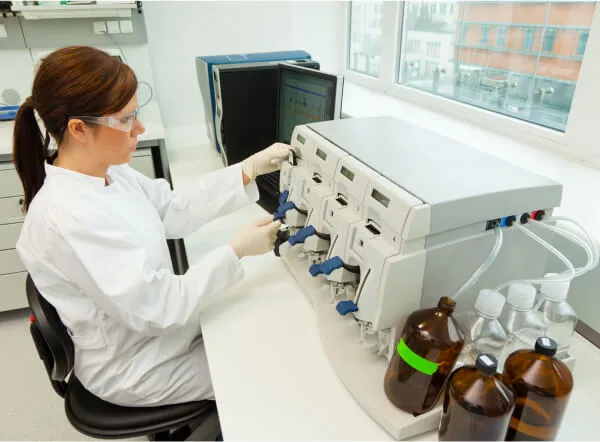Molecular Physiology

A degree in molecular physiology may prepare you to research complicated disease processes in the search for a cure to cancer, neurodegenerative disorders and more. Learn more about the field, potential careers, job outlook and degree programs.
<h2 id="section---IsMolecularPhysiologyForMe">Is Molecular Physiology for Me?</h2>
<h3 id="section---CareerOverview">Career Overview</h3>
<p>Molecular physiology is a biological science, which scientifically studies the functioning of living organisms, such as humans, plants or insects, at the molecular level. The research approach of molecular physiology is interdisciplinary, encompassing cellular and molecular biology as well as molecular genetics and other scientific disciplines. Biological scientists working in molecular physiology aim to solve problems in areas such as cancer, wound healing, liver disease and neurodegenerative disorders among other areas.
</p>
<h3 id="section---Specializations">Specializations</h3>
<p>At the undergraduate level, a bachelor's degree in the biological sciences may get you started in the field. With a bachelor's degree in biology, you may be prepared for a job as a lab assistant, teacher or pharmaceutical sales representative. Additionally, you may decide to apply to medical school or other professional degree programs. With a master's degree in molecular physiology, you might find employment in product development or applied research. A doctorate in molecular physiology is typically required for most independent research positions in industry and faculty positions at the university level. Employment settings may include biotechnology and pharmaceutical companies, hospitals and universities.
</p>
<h3 id="section---SalaryAndEmploymentOutlook">Salary and Employment Outlook</h3>
<p>According to the U.S. Bureau of Labor Statistics (BLS), over 29,000 biochemists and biophysicists were employed nationwide in 2012. These careers are closely related to molecular physiology and many job duties are similar. Research and development companies, medicine manufacturers and educational institutions are where the majority of these professionals found employment. Though statistics were not available specifically for molecular physiologists, in 2012, the BLS reported that biophysicists and biochemists earned a median annual wage of $81,480. Other types of biological scientists received $72,700 in annual compensation. Although the BLS predicted that some research positions would be competitive, employment of biophysicists and biochemists was expected to grow 19% from 2012-2022.
</p>
<h2 id="section---HowCanIWorkInMolecularPhysiology">How Can I Work in Molecular Physiology?</h2>
<h3 id="section---EducationRequirements">Education Requirements</h3>
<p>Molecular physiology degrees are generally available at the graduate level. A university may not offer a graduate degree in just molecular physiology, but rather combines it with another discipline, such as biophysics. Admission requirements to graduate programs vary according to the institution. Some programs may require a specific degree, such as a bachelor's in the physical or biological sciences, while other programs specify just a bachelor's or master's degree. Most programs expect students have completed certain courses, including calculus, biology, chemistry and molecular biology. GRE (Graduate Record Examination) test scores may also be required.
</p>
<h3 id="section---GraduateStudies">Graduate Studies</h3>
<p>A master's program builds on your undergraduate knowledge and helps you hone your researching skills. You generally may choose from a thesis option requiring laboratory research or a non-thesis option that involves library research and a written exam.
</p>
<p>A molecular physiology doctoral degree may take up to five years to complete and generally includes qualifying exams and lab rotations, along with a successful defense of a written dissertation based on original research. You may take courses in biochemistry, proteins, enzymology, cell biology and cell processes. If you want to be a doctor, you may be interested in a dual Doctor of Medicine (M.D.)/Ph.D. program, which is also available.</p>


.svg)